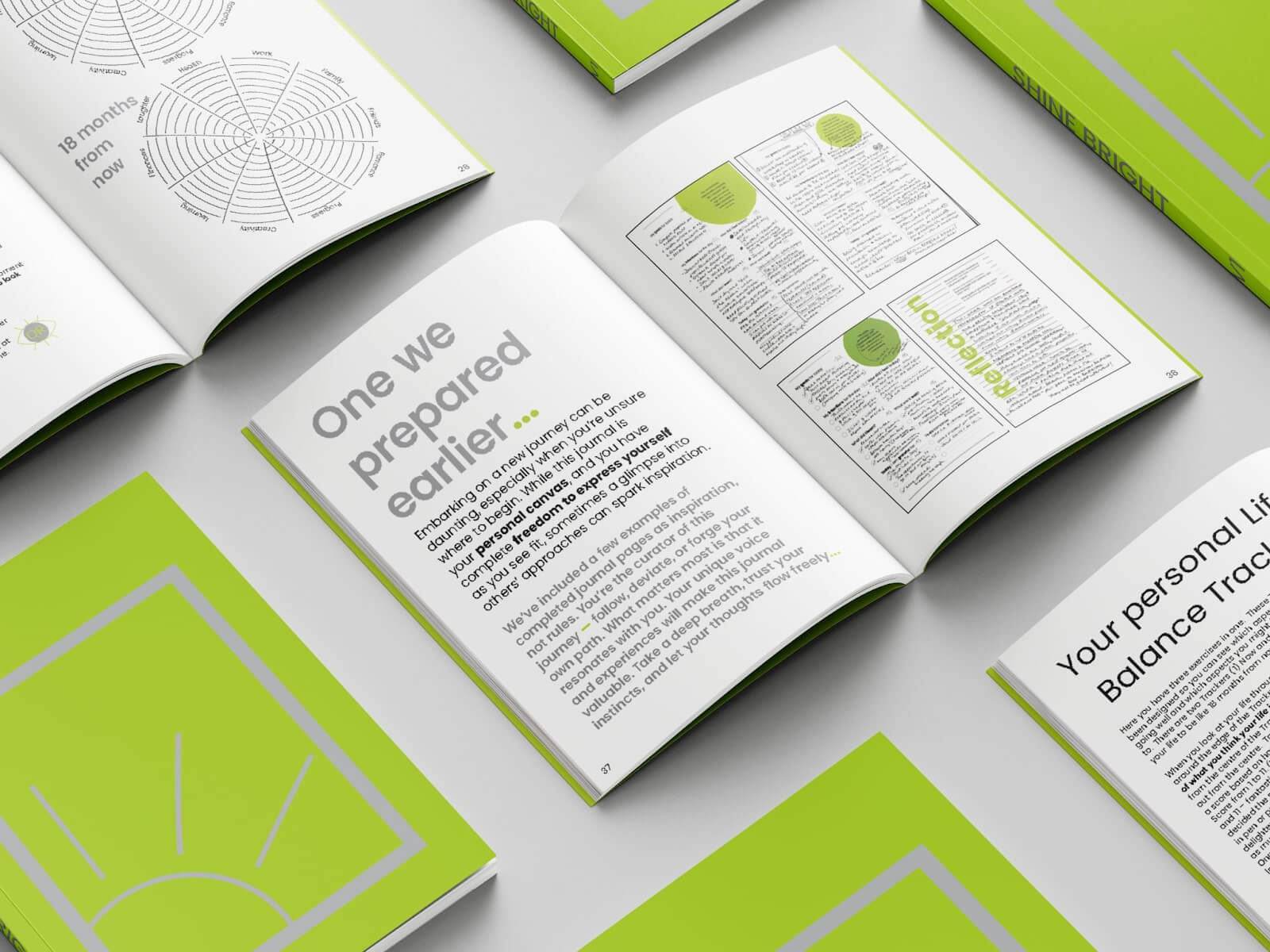How to use emotional intelligence in customer service?
The quick answer: by recognizing and addressing emotionally charged situations more effectively, you can transform interactions and exceed customer expectations.
For an in-depth answer, we turn to our conversation with Sandra Thompson. Buckle up, and let's dive in!
Our invited CX expert, Sandra Thompson, has turned emotional intelligence into a powerful tool for transforming customer and employee experiences. As the UK’s first Goleman Emotional Intelligence Coach and founder of The Ei Evolution, Sandra offers a unique perspective and depth of expertise.
With over a decade of experience working with brands like Vodafone, Waitrose and Battersea Dog & Cats Home, she shares how emotional intelligence in customer service can fuel business growth and success. In this conversation, we dive into how emotional intelligence can transform the way businesses engage with both customers and their teams.
Sandra Thompson’s road to emotional intelligence in customer service
Q: Since founding Exceed All Expectations in 2010 and rebranding as The Ei Evolution, you’ve made an impressive journey. What inspired your shift to focus towards emotional intelligence?
I revisited emotional intelligence when I was invited to take part in a TEDx a few years ago. I was lecturing at a business school in London and some of my students applied for the TEDx license, they invited me to speak at their inaugural event. At that point, I thought, “I'm going to research emotional intelligence again,” you see, I’d studied the skill of EQ back in the year 2000 when I was writing my Masters thesis on the topic of EQ and its influence on branding. When I did my research then, there wasn’t much written about it but I knew there was something amazing about it.

Choosing to go back EQ (cough) years later, I thought to myself, “What if we brought emotional intelligence to customer experience? What if emotional intelligence was the secret sauce for employee experience?”
By becoming more knowledgeable about emotional intelligence and empathy I had a rare opportunity to find a niche, a special place in this sea of customer experience, and carve my own path. I'm really happy about that because taking the EQ route has also been a learning journey for me. I've been finding out far more about psychology and neuroscience, and as a lifelong learner, that's a real treat.
Working with Arsenal FC, Waitrose, and Vodafone
Q: You’ve worked with well-known clients like Vodafone, Arsenal Football Club, and Waitrose. What role has emotional intelligence played in these collaborations?
There are a couple of things here. The first thing is the process of trying to work out what exactly the client wants. So, I am often invited to answer a question or have a quick chat with a potential client about a piece of work. With the skill of EQ I can quickly ask some really good questions to get to the core of what they need. I can often read between the lines very quickly. Often, what potential clients need isn't what they asked for. So that's the first thing. It's understanding the purpose of the work and the job itself quickly.
The second part is the ability to listen, interpret, and understand what's going on for those organizations. For example, with Vodafone, we were working with some of Vodafone’s partners. We tried to understand how to strengthen those partnerships. It takes the skill of emotional intelligence to listen, understand, probe in a certain way, and to respond respectfully.
Again, with Arsenal, this work was about listening and observing their customers. Hearing what was not said, why people were doing what they were doing. When I think about Waitrose, that work was about coming up with an intelligent employee strategy but also bringing their brand values to life. So, it's in two ways. One is articulating what the actual organization needs to focus on (it’s often not what they think), and two, it's the additional skills (EQ brings) that shines a light on something the client might have known or not thought about in that way. Many clients commission me because I give them some food for thought that makes them think about things in a completely different way.
How emotional intelligence impacts customer experience and employee experience
Q: Emotional intelligence is often associated with personal development, but you’ve applied it to the business world. How does EQ transform customer experience and employee engagement?
Think back to the experiences you have had as a customer and think about those that have been either remarkable, meaningful, or memorable in a positive way. It’s likely that there has been a human involved. Someone has gone the extra mile, someone has been attentive, someone has been proactive, thought ahead, and been hugely supportive in extraordinary ways. They have the power to transform transactional into transformational.
Those who represent the brand, those who connect emotionally with customers, use empathy and emotional intelligence to do so. The people we meet or connect with, a lot of the time are under massive pressure.
“When those staff are able to balance the anxiety, tiredness, burn-out and increasing demands of customers and still be attentive and nourishing, then they are absolutely mastering emotional intelligence; they're practicing the skill.”
So, this example shows us how EQ can transform the experience of the customer by an employee who exercises their EQ and empathy muscle.
The second example of transforming experiences with EQ can be seen between staff members. Again, it's all very well being on the front line and wanting to be empathetic and use the EQ skill you have learned, but if you don't have the support of your leaders, if you don't have the support of your team leaders, then you're really stuck because you don’t have the permission, agency or support to use that skill. Organizations that encourage their staff to use their empathy and emotional intelligence have leaders competent in emotional intelligence – they are not uncertain or threatened by it.
Leaders have to be able to manage their emotions in order to give individuals the space, confidence, and reassurance to do their best work. Amazing things happen when emotional intelligence and empathy is nurtured in organizations. They have the power to transform a toxic workplace into a progressive and thriving business.
Improving remote customer service with EQ
Q: During your TEDx talk, you discussed the benefits of EQ in remote work. How do you see emotional intelligence shaping the future of remote customer service?
During the pandemic, I prepared for TEDx and was fascinated by human behaviour under extreme conditions. I had stories about trying to buy something from someone in a contact center and also from someone else working remotely. And I wondered if people who work from home or work hybrid or remotely had different levels of emotional intelligence. I wondered if people working from home had higher levels of EQ.
While doing my research, I came across a research paper that said people who work from home have higher levels of emotional intelligence because they need to be more resilient, adaptable, and positive with their outlook. This research showed how people working from home practice eight of the twelve competencies that define emotional intelligence, more so than those working in an office environment; people working remotely have to over-communicate to be understood, they have to be crystal clear, and listen to the nonverbal as well as the verbal signals, this is why they have higher EQ.
So, the argument is if your contact centre staff are remote, they might practice greater emotional intelligence which would result in greater customer satisfaction, fewer complaints, and staff that stay with you longer.
This could be why we are seeing changes to the way contact centres work. We are increasingly seeing flexibility, a remote working model where individuals can choose their hours, can be located anywhere in the world. This approach to contact centre management means that both customer and employee satisfaction results have been great!
How to measure emotional intelligence in customer experience and employee experience
Q: Can you share a specific example of how applying emotional intelligence resulted in a measurable improvement in a company’s CX or EX?
So, I will start with employee experience first. I recently led a mediation with a couple of members of staff who had not seen eye to eye for about 8 months. They had been through a HR process where both ‘sides’ had been noted and a ‘solution’ had been found. But it hadn’t. I was invited to facilitate a conversation between the two. I used EQ to set up the conversation, curiosity, good questions, active listening, encouragement and reinforcement.
Difficult conversations don’t need to be difficult. They are just conversations between two people. The facilitated conversation went well. Both individuals found the situation resolved, they committed to the homework and they are more collaborative, productive and happier now than before.
So, conflict resolution is found much quicker when you apply emotional intelligence. That’s an EX example.
When we think about CX. How about complaints? People complain mostly because they think that they have not been heard, that they are not significant. To start, the organization has not thought through a process from the customer’s perspective of what is reasonable and acceptable, they have mostly been thinking about protecting the business and leaving the customer out in the cold when the customer doesn’t have the experience they were expecting. When organizations think about designing their processes with EQ they experience fewer complaints because they consider the human and not protecting the business from the customer after the transaction has happened (and they have the customer’s money!)
Ask yourself, how empathetic and emotionally intelligent is my business? If I made a complaint about something [try this if your name would not be spotted as a member of staff] in my business, how would I be treated? What level of emotional intelligence and empathy would I experience? Gain first-hand experience and think, is this OK?
When your staff are so in tune with all the signals and communication your customers are giving, they can resolve any potential conflict before it even happens. When a customer feels significant, they won’t escalate, they won’t take any more of your time, they won’t tell others how terrible you are, you’ll reduce your costs! That means no complaint, no escalation and no additional time spent. No extra costs.
Emotional intelligence plus AI: How to find the perfect balance?
Q: As technology increasingly handles customer interactions, how can businesses keep emotional intelligence at the heart of their support processes?
So, we must understand what technology is. Technology is an enabler. We know that it can help us as humans to do a faster, more efficient, more thorough job. We also know that while we are replacing a lot of human connections with technology, as a species, we still long to have a human connection. We still long to be reassured, hear a voice, have a discussion, debate, and explore things. Technology, while powerful, operates within the limits of what we program it to do. In contrast, human beings can intuitively sense and respond to nuances that go beyond data—recognizing things that might be of interest or concern. In context.
Leaders who practice emotional intelligence and compassion and are more likely to use technology in a balanced way. They will leverage it to handle routine, boring and mundane tasks—those low-risk transactions that don’t require much emotional input. Knowing how the human brain works is so important because when a customer needs to deal with a more complex situation, where customers feel uncertain or where employees start to feel nervous and anxious—relying solely on technology becomes a problem (the absence of the human only aggravates the situation – because other humans give us reassurance).
It takes a courageous person to stand up and say, "Hold on a minute. The technology isn't quite good enough yet, or we still need to maintain an emotional connection with our customers." Otherwise, where is our personality? Where is that emotional connection? What is our differentiator? How do we stand out from any other company using technology for most of its ‘connection’ with customers?
Emotional intelligence in the upcoming projects and books
Q: Let's talk a little bit about your future. We know that you have your first book coming up. What new projects or areas of focus are you exploring next?
So, do you know what? I have wanted to write a book for years. And then, it suddenly dawned on me that I didn't need to do any more research. I knew enough, and I could write a book. It's called Shine Bright [Volume 1] and will come out in a few months. It's a twelve-week reflection journal that teaches individuals how to become more emotionally intelligent. And I'm super excited about it. From 1 November you’ll be able to grab your own copy from Brown Dog Books.

Source: The EI Evolution
A couple of months ago I started the Emotional Intelligence Pawdcast, it’s all about humans and their dogs. I think that we can learn a great deal from dogs. How they live in the moment, how they sense our moods and emotions, how they feel joy in the simplest of things. We’re on our 12th episode now and we’ve heard some brilliant accounts of empathy and emotional intelligence stories from our guests. Tune in Emotional Intelligence Pawdcast. Next year I’ll be taking the nuggets from this production and writing a new book - a different take on emotional intelligence. I don't know what Daniel Goleman will think about it, but I will send him a copy and see what he thinks.

The other last thing I want to mention is that I'm working with an incredible human on an emotional intelligence and communication course launching January 2025. I'm super excited about working in a new collaboration with someone who's as enthusiastic about EQ as I am. Learning how to communicate in very sharp and smart ways is what we need more than ever. More will be announced on Linkedin soon.
How to implement emotional intelligence into a CX strategy
Q: What advice would you give to companies looking to incorporate emotional intelligence into their customer and employee experience strategies?
There are many ways you can do this, and I've used each of these different ways that I'm about to describe. Here are a few strategies to consider:
Strategy #1: pick a team
Rather than take an organisation-wide approach, pick one team and start working with them and how they can grow their emotional intelligence. I've done this recently with an Internet company in North America, where a team of people have been learning the skill of emotional intelligence. The interesting thing here is that they start to behave differently with their colleagues in other parts of the organization when they start to learn the skill. Their colleagues start to notice differences with their behaviour, they start to get curious about what is going on, and there's a ripple effect. Now, these individuals are midway in the organization's hierarchy. It’s like starting a catalyst for change.
Strategy #2: speak to the leaders
The next approach is to speak to the leadership. In this case you’d devise a programme of learning about the skill so that leaders understand emotional intelligence and the behaviours of emotionally intelligent people. Most importantly, once the leadership understands the potential of EQ, they appreciate how much money they will save, how much money they will make, and costs they will avoid if they practice this skill. This is important because leadership can often perceive EQ to be a ‘soft skills’ ‘nice to have’ ‘intangible’ ‘fluffy’ thing. When I explain the science and the facts behind EQ leaders start to appreciate the game changer it really is but I need often to start the conversation with the financial difference the skill can make.
Strategy #3: take the front line
Another approach is to focus EQ learning with the front line and train them on emotional intelligence. Now, this is an interesting one because, of course, you're not working with the mid-level, and you're not working with the leadership, but you are investing in your frontline staff. In this case, a couple of things could happen. The first thing is that more front line staff stay in the business. So, you see a reduction in the number of people leaving. You see people performing better. You’ll also find [as I mentioned before], that there would be a reduction in customer complaints because the front line staff will effectively dispel the issues or disperse the disappointment or negative feedback from the customer. With EQ you see a much better performance at the front line.
To see the front line succeed with EQ the people who are managing those staff have to understand what they're learning, be respectful, and give the individuals the space and reassurance to use the skill.
How AI and automation impact the future of EI
Q: Looking ahead, how do you think emotional intelligence will change in business as AI and automation become more common in customer service?
I think that we're going to see new jobs coming up. I think there's a lot of scaremongering now. We hear a lot in the media about “Everyone's going to be made redundant, and no one's going to be left doing anything”. I think there will be new jobs that we haven't even dreamt of yet. We should expect that new ideas and ways of doing things will come from having the space to think because technology will cover all of the repetitive and time-consuming tasks.
We might see more or different services or products from organizations that want to add more excitement to their brand. And because they have the headspace to do it, they might invest differently. I think that there might be a pushback from customers. I don't know. I wonder whether customers will get fed up with all the technology and go back to brands that offer more human relatable experiences. Who knows?
We might see better intergenerational understanding in the workplace with the advancement of AI. Again, I'm of a particular age. I see people 30 years younger than me coming into the workforce now. With the help of technology and AI, we are likely to understand each other a little bit better and bridge those gaps in understanding one another’s ways of working.
I'm hoping advances in AI will lead to a better appreciation, acceptance and understanding of neurodiversity.
We need to ensure that the human spirit, soul, creativity, and wonderful randomness are kept in the organization even when it wants to use AI to advance itself. We need to ensure that spontaneous, unusual, bizarre flair that brands are capable of isn't lost. It takes courage and bravery of leadership to grasp AI and ensure that we don’t lose the essence of what makes us amazing humans. To have that courage and bravery, those leaders have, most likely mastered the skill of EQ.



